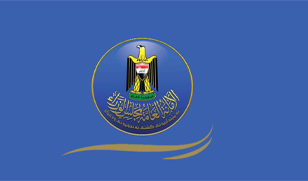Instructions of the General Secretariat of the Council of Ministers in the balance
Dr. Murtaza Ali Hussain
The General Secretariat of the Council of Ministers plays an important role in the functioning of public utilities In Iraq, it is in charge of preparing and organizing what is required for the Council of Ministers to exercise its work, as indicated by Article (22) of the Council of Ministers Law No. (20) of 1991, and its importance has increased under the existing political system on the basis of the Constitution of the Republic of Iraq for the year 2005, according to several Principles, including the separation of powers, dealt with legislation, regulations and practical practice that draws for the General Secretariat of the Council of Ministers and through which it plays a pivotal role in government work and coordination between ministries on the one hand, and the connection with the legislative and judicial authorities and civil society institutions on the other hand through organizing draft laws and treaties and preparing public budgets and accounts The final committee and the formation of various committees, leading to the progress of the tasks entrusted to state institutions in accordance with cooperation and integration among them.
The constitution outlined the formation of the executive authority and its competencies in its second chapter, defining its formations in Article (66) thereof as the President of the Republic and the Council of Ministers, and upon an inquiry made by the Secretary-General of the Council of Ministers regarding ownership by Palestinians residing in Iraq since 1948, the Federal Court replied in its decision No. ( 28) On 3/28/2022, the request was formal and did not consider its subject matter, based on the fact that he - that is, the Secretary General - does not represent the Council of Ministers, but is represented by the Prime Minister.
Here we pause to define what is related to the tasks of this secretariat and to differentiate between it and the Council of Ministers and its president. Article (78) of the constitution described the functions of the Prime Minister, and Article (80) of it enumerated the powers of the Council of Ministers, and Article (85) of it stipulated the organization of its workflow by a system established by the Council , which was decided according to the internal system No. (8) of 2014, which was replaced by the amended system No. (2) of 2019, which enumerated the Council’s institutions as (the General Secretariat of the Council of Ministers) that undertakes all What is related to the work of the Council, and (the Prime Minister's Office), which is concerned with the duties of the Prime Minister, and the work of the (Council of Advisors) is limited to providing advisory support. This differentiation was precisely present in the Federal Supreme Court In its decision that we referred to above, and it must be present among those working in positions of responsibility in public institutions in the way that it is understood that the distribution of competencies according to constitutional texts or laws and regulations is not built on the basis of granting any of them privileges, as much as it is supposed to be a distribution It is required by foundations that seek to control the performance of these bodies according to objective requirements, including what was stipulated in Article (42) of the internal system of the Council of Ministers in force to restrict the government’s actions to the conduct of daily affairs, due to the existence of an imbalance in the balance of control over these actions as a result of the lack of meeting
The House of Representatives is assigned the role of political oversight at the end of the electoral cycle or the dissolution of the House of Representatives, or because of the continuation of the work of a previous government after the approval of the results of subsequent elections, which makes monitoring it useless, since it does not sign the supposed punishment of withdrawing confidence from the government when there is what is required, as it has already resigned Or by virtue of the resignation, and the Federal Court, in its decision No. (121) on 5/15/2022, deliberately rooted these concepts and based on them in its response to an inquiry submitted by the President of the Republic for this purpose, to conclude that the Council of Ministers continues to manage daily matters that include decisions And the procedures that will continue the regular functioning of public utilities to provide services to the people, and do not include decisions that involve influential political reasons and motives, such as proposing draft laws, contracting loans, or appointing and exempting from high positions in the state, or restructuring ministries and departments.
In view of the existence of violations by the previous caretaker government, and based on this Federal Court decision, the Council of Ministers, in its second regular session held on 1/11/2022, issued Resolution No. (280), including the cancellation of all decisions, customs orders, approvals, and ministerial and administrative orders issued by the previous government. Concerning appointing or assigning heads of entities not associated with a ministry, special grades, general managers, those of their rank, and those who receive their salaries, starting from (10/8/2021) until giving confidence to the current government on (10/27/2022).
And if this procedure is correct - and it is undoubtedly so - except that what is required for it must include what the court referred to in its decision based on it in restricting the competences of the daily caretaker government in addition to appointing high positions, as stipulated in the court’s decision on the illegality of presenting bills and holding contracts. Loans, appointments to the highest positions of the state and exemption from them, or restructuring ministries and departments, and all other decisions related to the functioning of public utilities in a way that has a great impact on Iraq’s political, economic and social future. As the outgoing Prime Minister issued instructions for the formations of the departments of the General Secretariat of the Council of Ministers and their tasks No. (2) for the year 2022 published in the Iraqi Gazette, issue (4694).
On 10/17/2022, that is, after naming the Prime Minister, Mr. Muhammad Shia’ Al-Sudani, to form the government on 10/13/2022.
And (instructions) are not draft laws, rather they are (legislation) enacted by the executive authority, and the new cabinet is supposed to scrutinize the extent of their legitimacy according to the same requirement to issue its decision to cancel the aforementioned assignment of job grades, if it is not a fortiori. Especially since these instructions are concerned with regulating the affairs of the executive body responsible for its work in terms of formation and terms of reference.
In some detail, we point out that the aforementioned instructions have been legislated
without presenting it to the State Council for scrutiny, in clear violation of Article (7) of the amended State Council Law No. (65) of 1979, and these instructions included the creation of many new administrative formations of departments, divisions, and people entrusted with many tasks, in another violation For the decision of the Federal Court in question regarding the restructuring of ministries and departments, we mention what was stated in Articles (1/First) and (2/First)
And (3 / first / 2 / c, d), (4 / first), (5 / first / 1 / d, e, f), (8 / first), and (15).
Objectively, we point out that Instructions No. (2) of 2022
The grants of the General Secretariat of the Council of Ministers included in Article (2) the terms of reference for interpreting the texts of laws, regulations and instructions, and explaining legal advice and answering
To the inquiries of the relevant ministries and non-governmental bodies in issues related to the public office, and to resolve the contradiction between the legal texts, which goes far beyond the competences of the General Secretariat specified under Article (33) of the internal system of the Council of Ministers No. (2) for the year 2019, which it relied on in issuing it. These instructions also contradict the terms of reference of the Federal Supreme Court, the State Council, the Ministry of Finance, and several other government agencies. We mention, for example, but are not limited to, that according to Article (10/Second/2) of these instructions, one of the tasks of the Engineering Consultancy Department created in the formations of the General Secretariat of the Council Ministers express technical and engineering opinions and advice to ministries and agencies not associated with a ministry and governorates that are not organized in a region, whether at the request of these agencies or at the initiative of this (section), which lacks any support
of the law and overlaps with the work of the ministries and the competent sectoral authorities, and indicates an expansion In the competences of the Secretariat to replace the Council of Ministers or perhaps exceed its competences, and it is the council whose supposed legal existence is centered on the implementation of what it decides, and if the Secretary General of the Council of Ministers is considered the minister in charge of managing the General Secretariat of the Council of Ministers to the Council of Ministers as described in Article (31) of Cabinet Regulation No. (2) For the year 2019, he will have competencies beyond the description of Article (11) of the Council of Ministers Law No. (20) of 1991 as (Council decision).
And according to what the jurists of law have indicated, that the work that is carried out by any party within the limits of its powers to reach a goal other than the goal specified by law is considered arbitrary.
But if that authority deviates from the jurisdiction that it is restricted to by law, constitutionally or legislatively, then this will be considered a deviation, because the purpose for which the jurisdiction is granted represents its limits, and deviating from it to others is considered an illegal act, so we find in the issuance of instructions for the formations of the departments of the General Secretariat of the Council of Ministers No. ( 2) For the year 2022 from the former Prime Minister and at the aforementioned time, which makes him hesitant in describing what is between arbitrariness and deviation, and the Council of Ministers and its head should address its abolition and address the consequences of its implementation.







